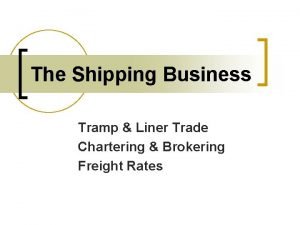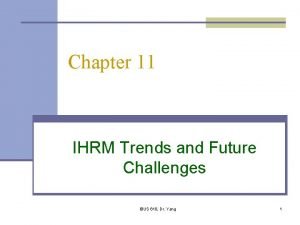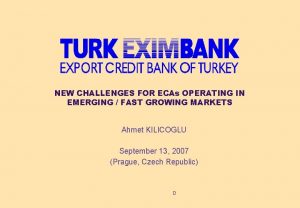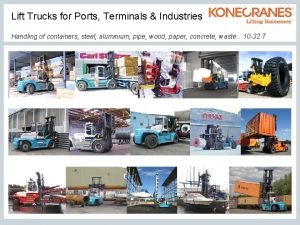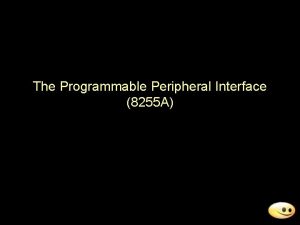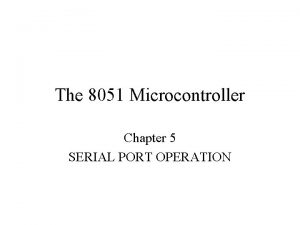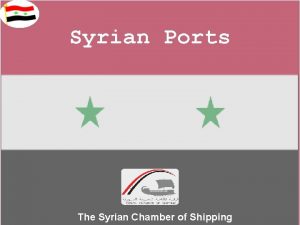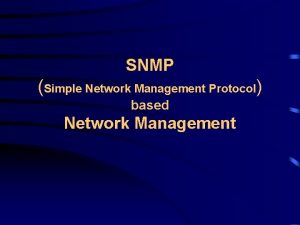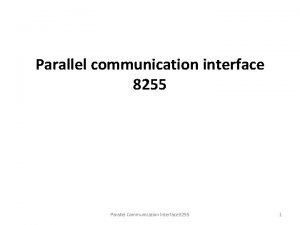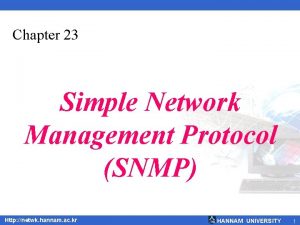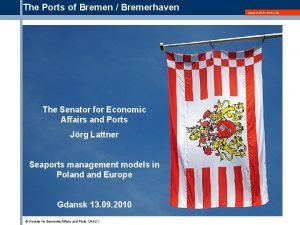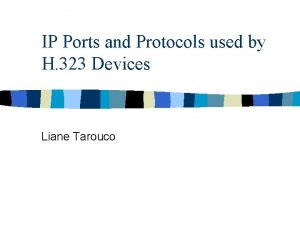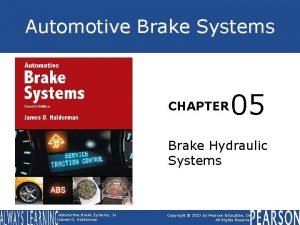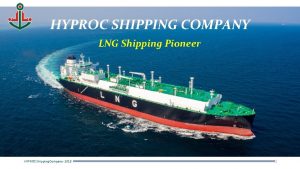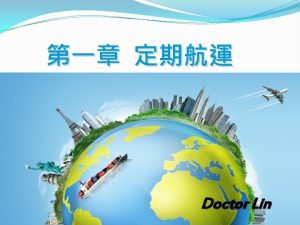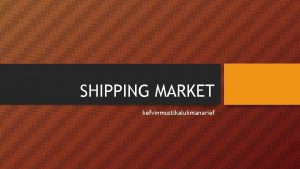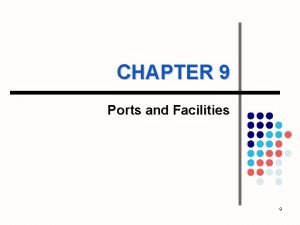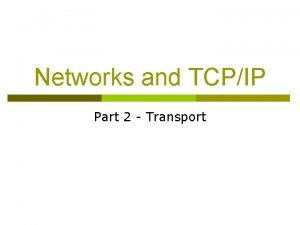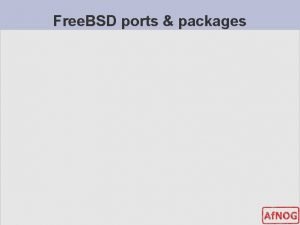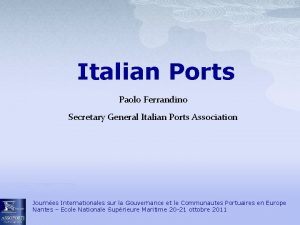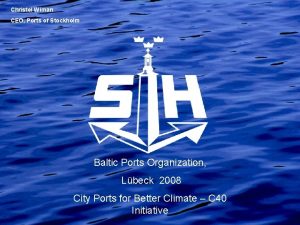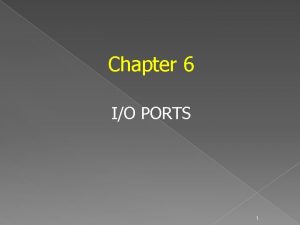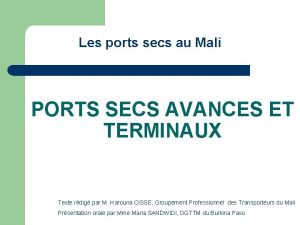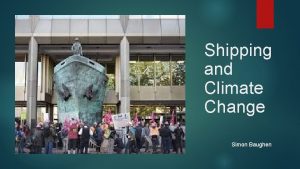Challenges and trends in European Shipping and Ports





















- Slides: 21


Challenges and trends in European Shipping and Ports FEPORT’s perspective Mr Gunther Bonz FEPORT President


FIGURES

The role of Terminal Operators in the maritime logistics chain Seaside Landside Intermodal operations Storage/ Wharehousing Logistics centers Schematic view of a container terminal (Meersmans & Dekker, 2001 Transformation manufacturing Terminal operations Seaside operations Loading and unloading of containers Yard operations eg : Storage Landside operations intermodal transshipment

Governance in Landlord ports in Landlord Ports Superstructure = Terminal operators Infrastructure = Port authority/municipality

We need national and EU regulators to provide us with : LEGAL CERTAINTY, VISIBILITY and CONSISTENCY Ø Stable and consistent framework regarding concessions Ø Global harmonized competition rules for the maritime sector Ø Clear governance rules preventing risks of distortion of competition by publicly subsided entities Ø Effective consultation of existing operators prior to new development plans in ports Ø Efficient ex ante mechanisms preventing the funding of new projects which are nor market driven Ø Enhanced connectivity of ports to the hinterland


Mega trends impacting port stakeholders Mega vessels Larger ships require more infrastructure in ports, more equipment in terminals and continuous investment is needed, more flexibility in labour organization, more investment in digitalization and automation… Sustainability and environmental concern Strict emission requirements and growing concern for the environment increase the demand for a reduction of the carbon footprint in ports while 85% of emissions in ports are coming from ships Industry consolidation New alliances and M&As between shipping lines are impacting container traffic flows. Less ports are called at…

Mega trends impacting port stakeholders Mega vessels Larger ships require more infrastructure in ports, more equipment in terminals and continuous investment is needed, more flexibility in labour organization, more investment in digitalization and automation… Industry consolidation New alliances and M&As between shipping lines are impacting container traffic flows. Less ports are called at… More investment in private equipment and superstructure without certainty to recoup investment More investment in public infrastructure with no garantee that it will be used

11 Alliances rationalization of port networks means less frequency, less direct port connections Weekly service frequency Asia-Europe 20122017 Direct port-to-port connections before and after new alliances (2017)

Mega trends impacting port stakeholders Strong position for the liner carriers and Weak bargaining position for the port stakeholders and Member States Mega vessels Larger ships require more infrastructure in ports, more equipment in terminals and continuous investment is needed, more flexibility in labour organization, more investment in digitalization and automation… Industry consolidation New alliances and M&As between shipping lines are impacting container traffic flows. Less ports are called at…

Impacts for stakeholders: ports, terminals Declining return on investment, related to: • Growing dependence on alliance calls • Buying power of carrier alliances • “Winner takes all” competition Resulting in: • Decline of smaller container ports • Concerns for independent terminal operators • Concentration in the towage sector


Threaths and opportunities for the logistics chain in relation to the review of the Consortia Regulation No exemption for other actors of the chain, “blind” about the strategies of liner shipping, weak in their bargaining position towards consortia and alliances Forwarder (Agent) Hinterland Port Container shipping lines Rail, Road or Barge Operator Cargo handling operator Seaport terminal operator Consortia BER Joint capacity management and joint purchasing of cargo handling services and techno nautical services Inland terminal operator Shipper consignee Road haulage Contractual link Customs Port authority Inspection authorities Administrative obligations Actor Non integrated BI&A systems

Mega trends impacting port stakeholders + Consortia BER without modifications = Stronger and stronger position for the liner carriers Weak bargaining position for the port stakeholders and Member States Mega vessels Larger ships require more infrastructure in ports, more equipment in terminals and continuous investment is needed, more flexibility in labour organization, more investment in digitalization and automation… Industry consolidation New alliances and M&As between shipping lines are impacting container traffic flows. Less ports are called at…

CLECAT: European Organization of Freight Forwarders ESC: European Shippers Council GSF: Global Shippers’ Forum EBU: European Barge Union ETA: European Tugowners Association EBA : European Boatmens’s Association UIRR: Interna. Eonal Union for Road-Rail Combined Transport ESO: European Skippers’ Organisazion (private inland shipping entrepreneurs)

Stakeholders in the Maritime Logistics Supply Chain call for a repeal of the Consortia BER CLECAT, ETA, EBU, ESO, IWT, ESC, FEPORT and the GSF representing users of liner shipping services and service providers (hereafter, the associations) all agreed that market developments which occurred over the last five years justify an in-depth review of the regulatory framework as this has not been done since 2009. They equally considered that the current framework has become obsolete given that most of the carriers operate in alliances and that market concentration is increasing. At the same time, an important condition for the exemption, which is to provide benefits to the customers, is no longer met, as neither service quality nor productivity have improved over the years. Instead, users of liner shipping services and their service providers have suffered from an increasingly unbalanced market situation since carriers entered into major cooperation agreements. Therefore, the associations jointly conclude that the Commission should repeal the Consortia Block Exemption Regulation unless a revised regulatory framework clarifying the current BER is adopted.


FEPORT requests of modification FEPORT strongly advocates the modification for the sake of improvement and clarity of the Consortia Regulation via the introduction of a number of provisions that will safeguard the interests of liner shipping customers and service providers and ensure a healthy competition. The provisions we propose should concern the following items: No joint purchasing of cargo handling services/port services to restore a more balanced situation for terminals and techno nautical services Market share of each member should take into account the overall capacity it deploys volumes it carries within and outside the consortium instead of goods/volumes that are carried. Exchange of data should be restricted to the shipping leg related operations. Reintroduction of the provision regarding the obligation for shipping lines part of a consortia to consult their customers and its extension to include the consultation of service providers (Terminals). Obligation of the lines to report back to the Commission about the consultations they have conducted with their customers and service providers Reintroduction of the withdrawal provision of the block exemption in case of ineffective competition and insufficient consultations with transport users and service providers

Thank you for your attention
 Tramp trade software
Tramp trade software Ihrm trends and future challenges
Ihrm trends and future challenges Future trends and challenges of hrm
Future trends and challenges of hrm Challenges of emerging trends in operating systems
Challenges of emerging trends in operating systems Lift trucks ports and terminal
Lift trucks ports and terminal Designated port exception permit
Designated port exception permit How many bit data bus buffer is used in 8255
How many bit data bus buffer is used in 8255 How many serial ports are there in 8051 microcontroller
How many serial ports are there in 8051 microcontroller Major sea ports in syria
Major sea ports in syria In band management definition
In band management definition Snmp ports
Snmp ports 8255 block diagram
8255 block diagram Commvault communication ports
Commvault communication ports Multimeter
Multimeter Kaseya port
Kaseya port Snmp meaning
Snmp meaning Pap vs paop
Pap vs paop 7 segment display interfacing with 8086 using 8255
7 segment display interfacing with 8086 using 8255 Ports of bremen/bremerhaven
Ports of bremen/bremerhaven H 323 ports
H 323 ports Brake hydraulic systems
Brake hydraulic systems The bearing of a ship from a lighthouse is 050
The bearing of a ship from a lighthouse is 050
